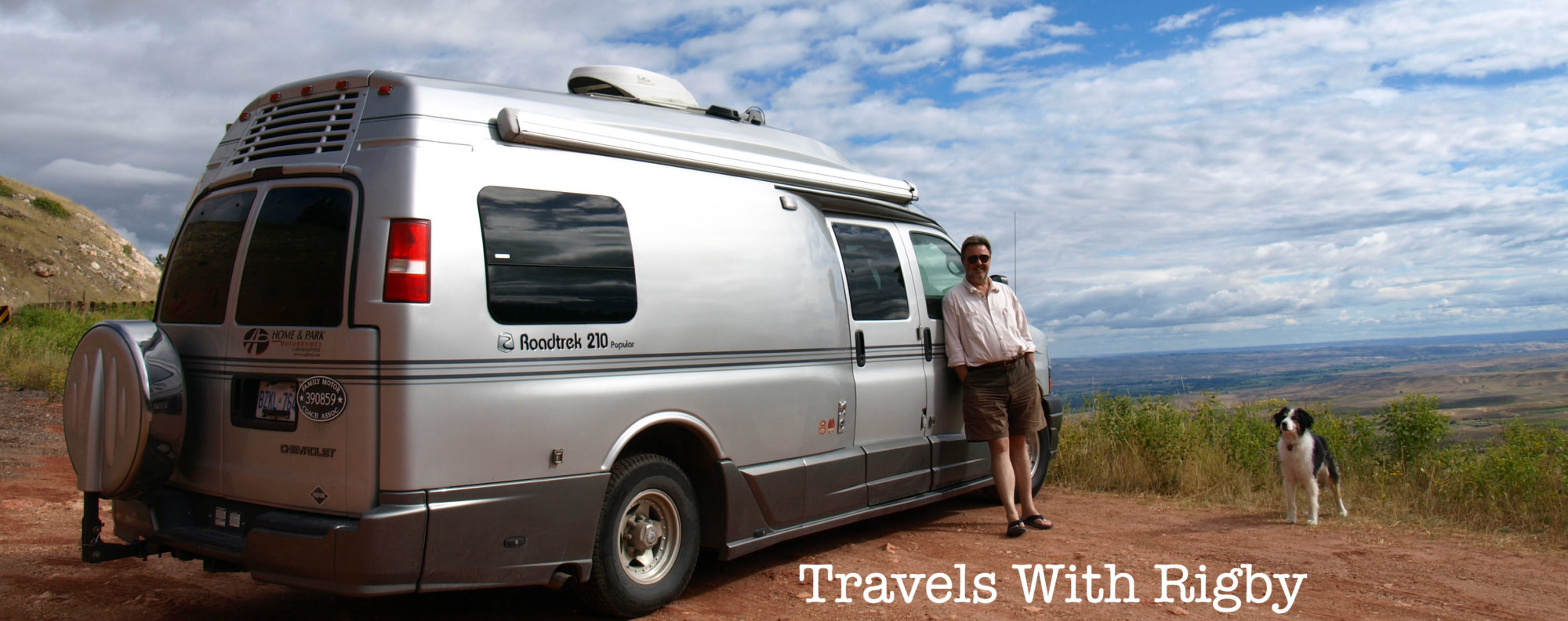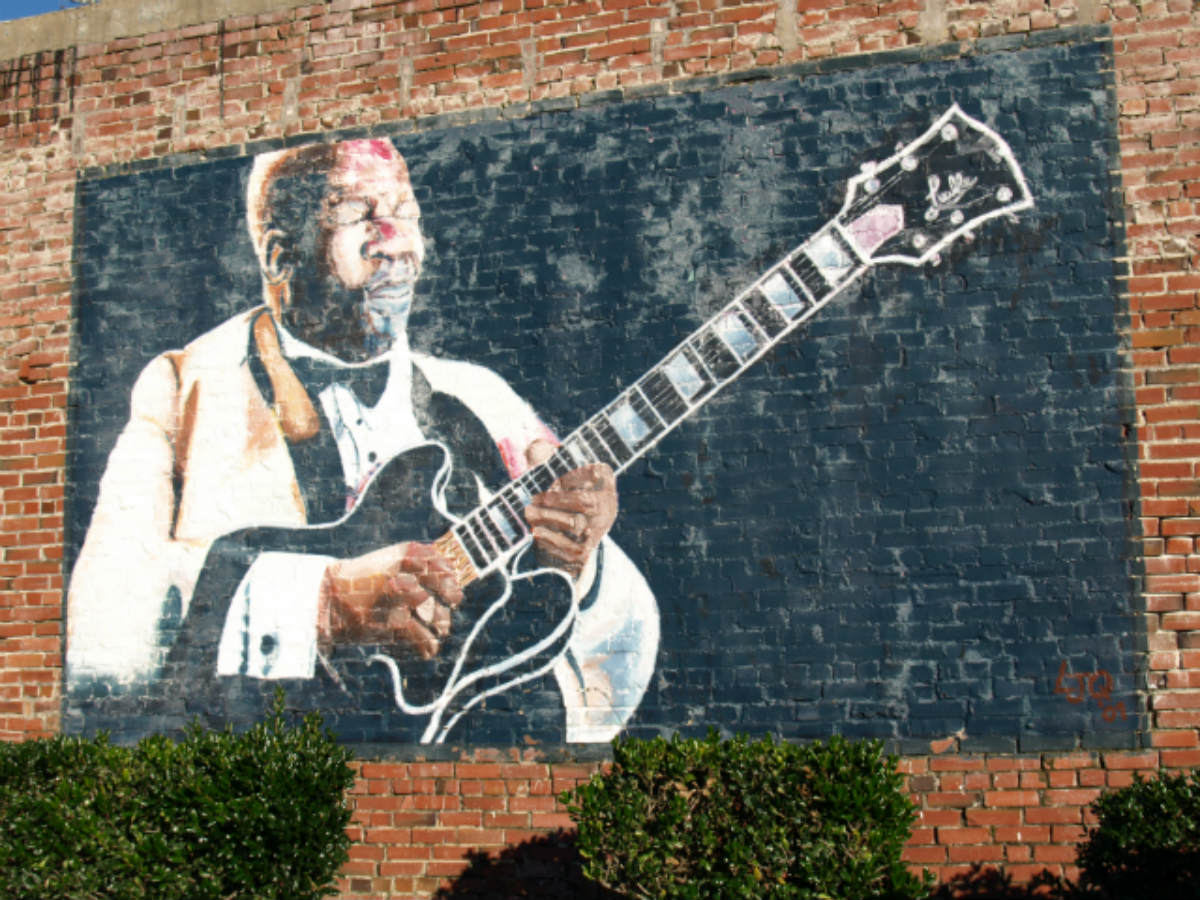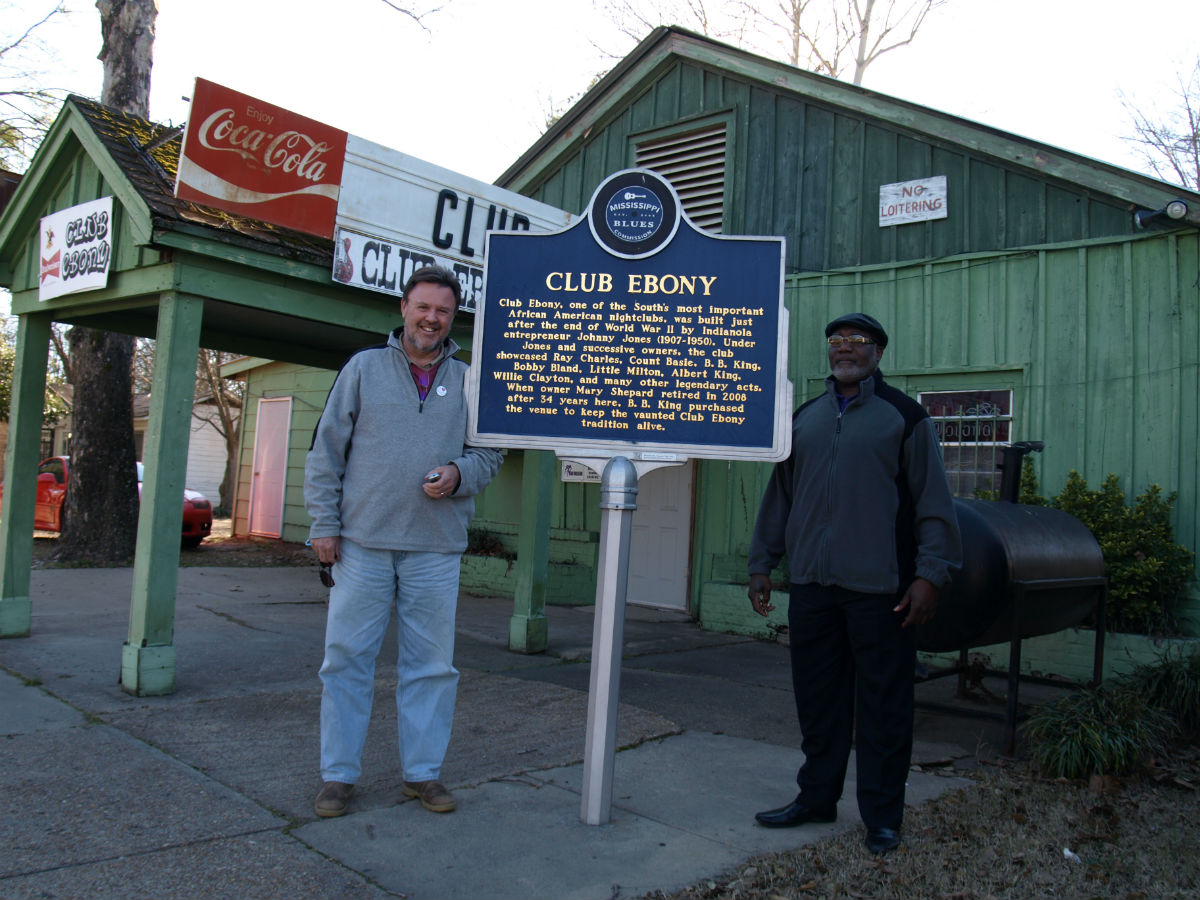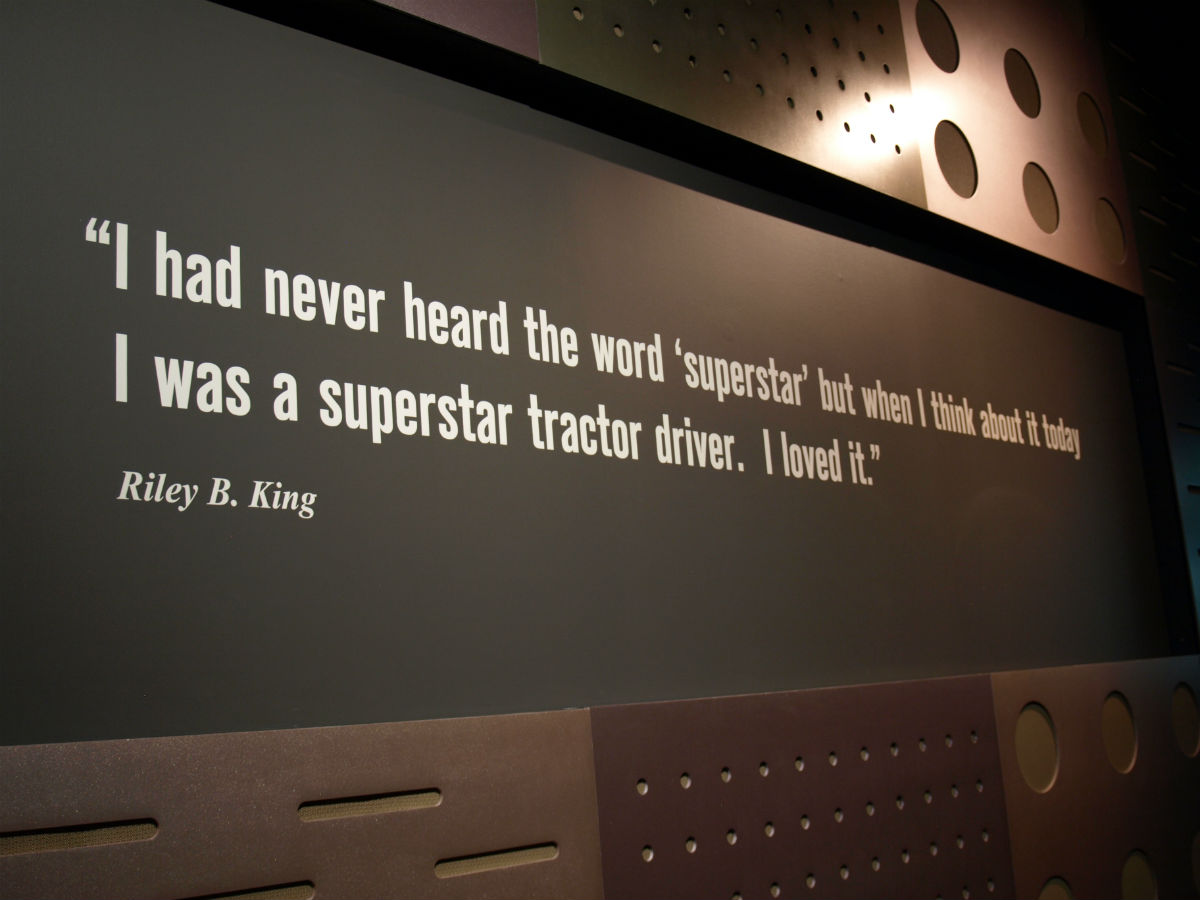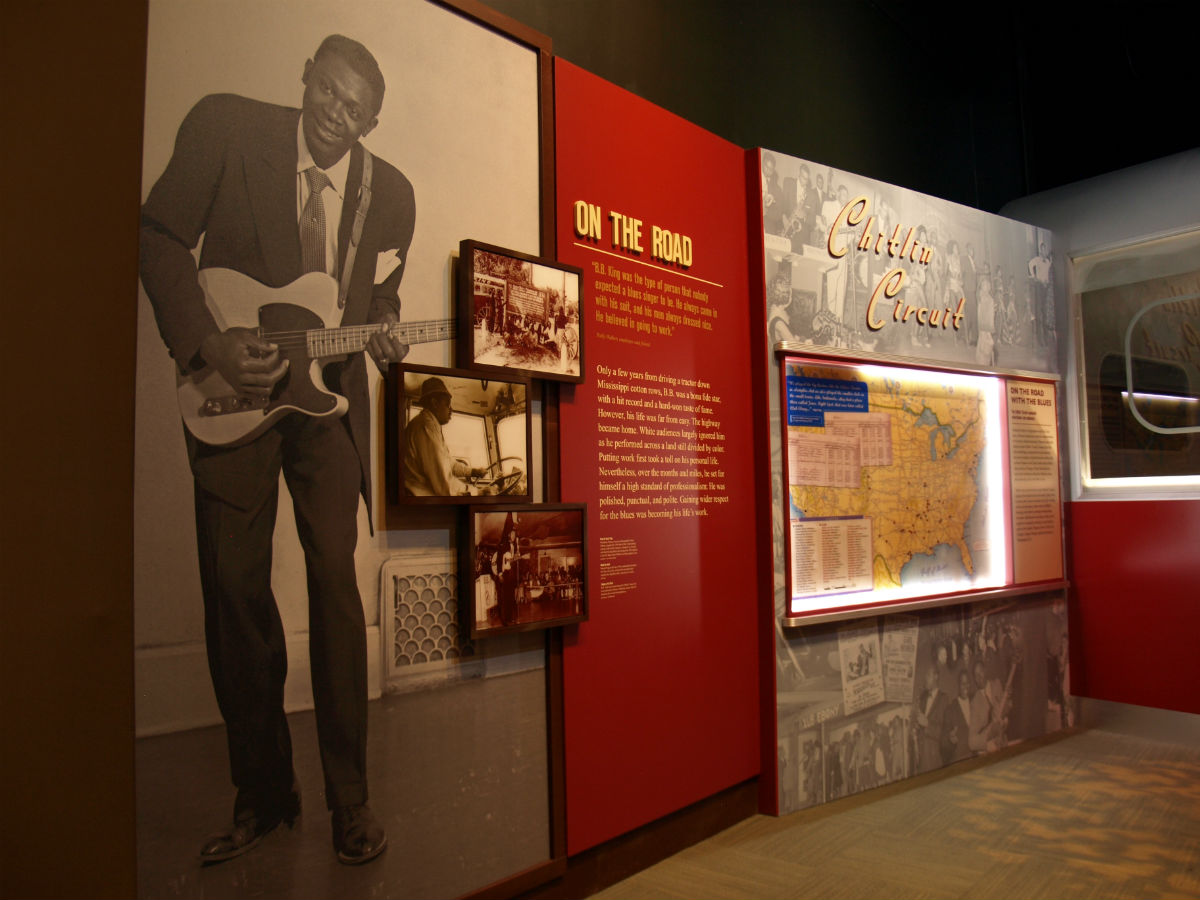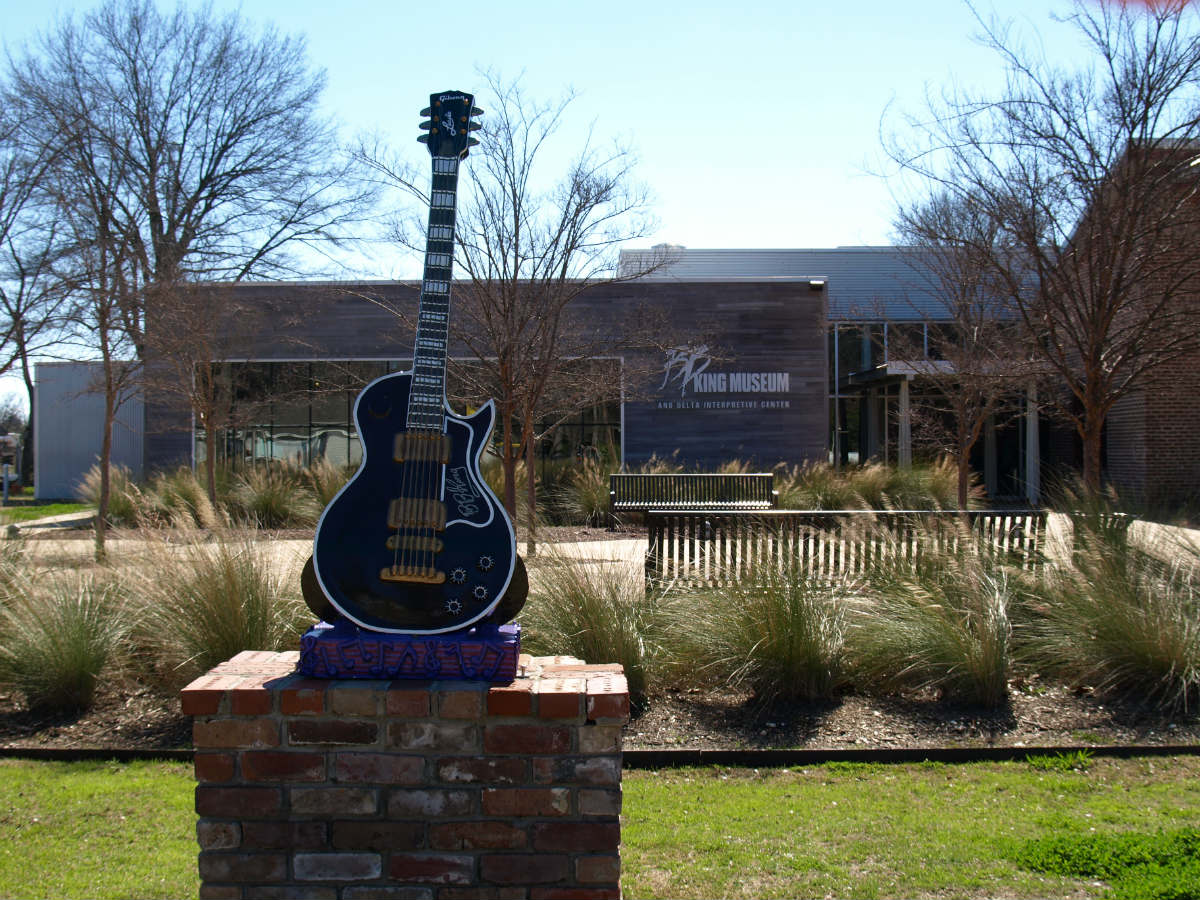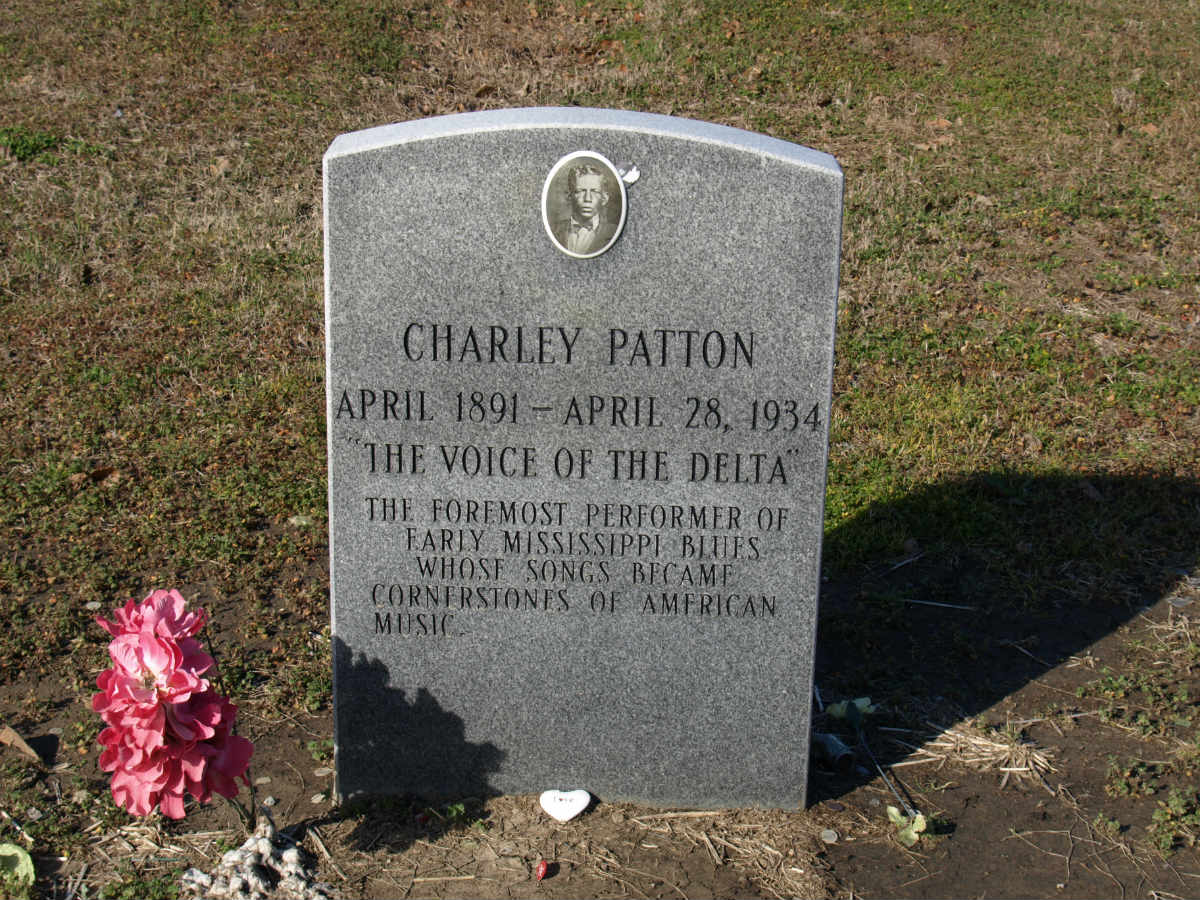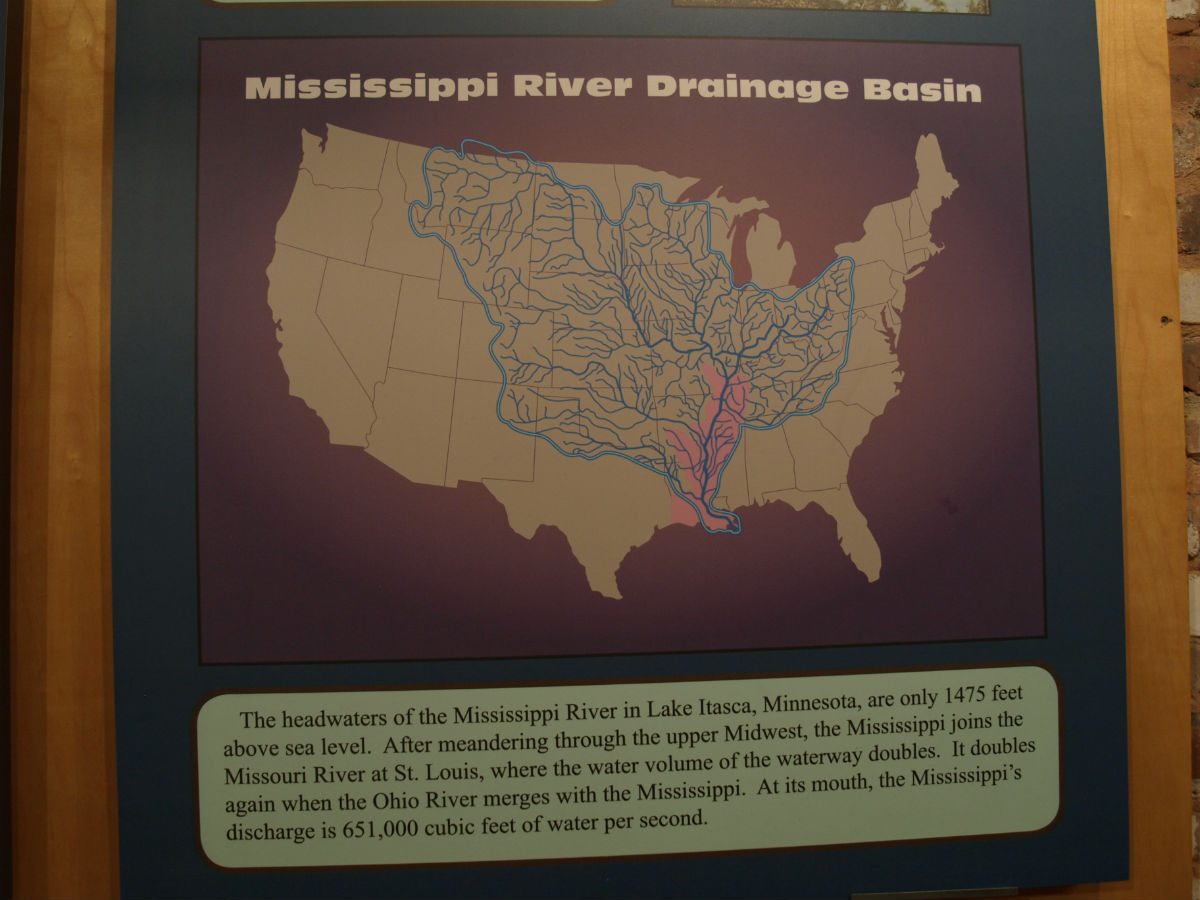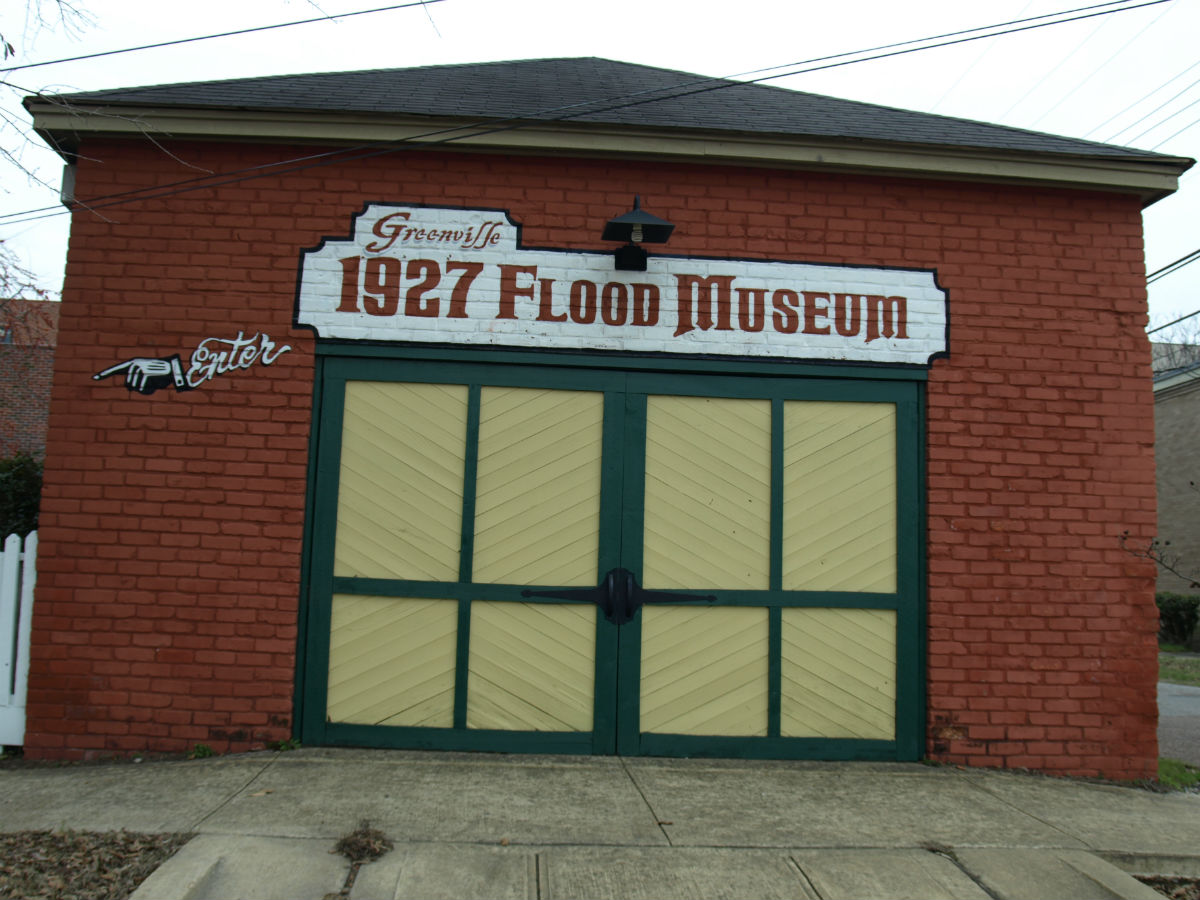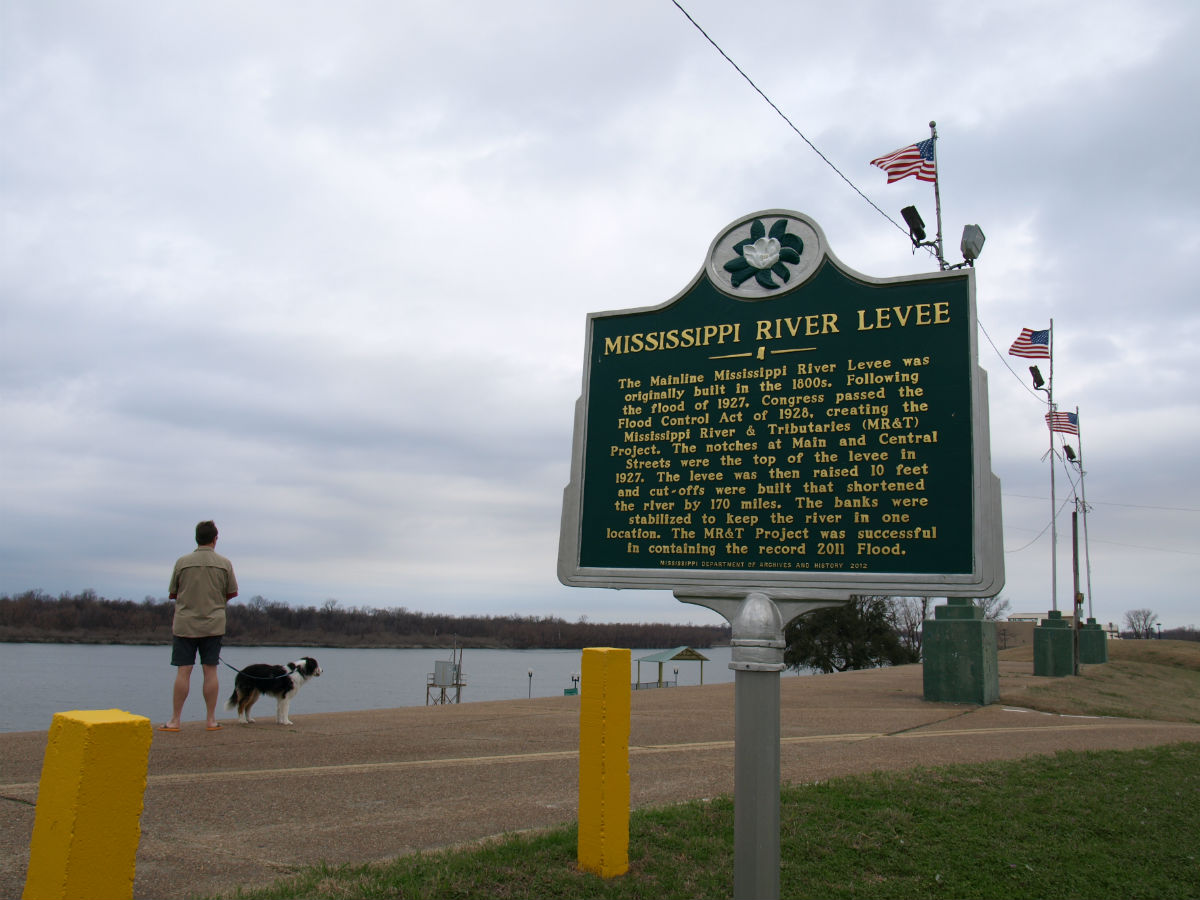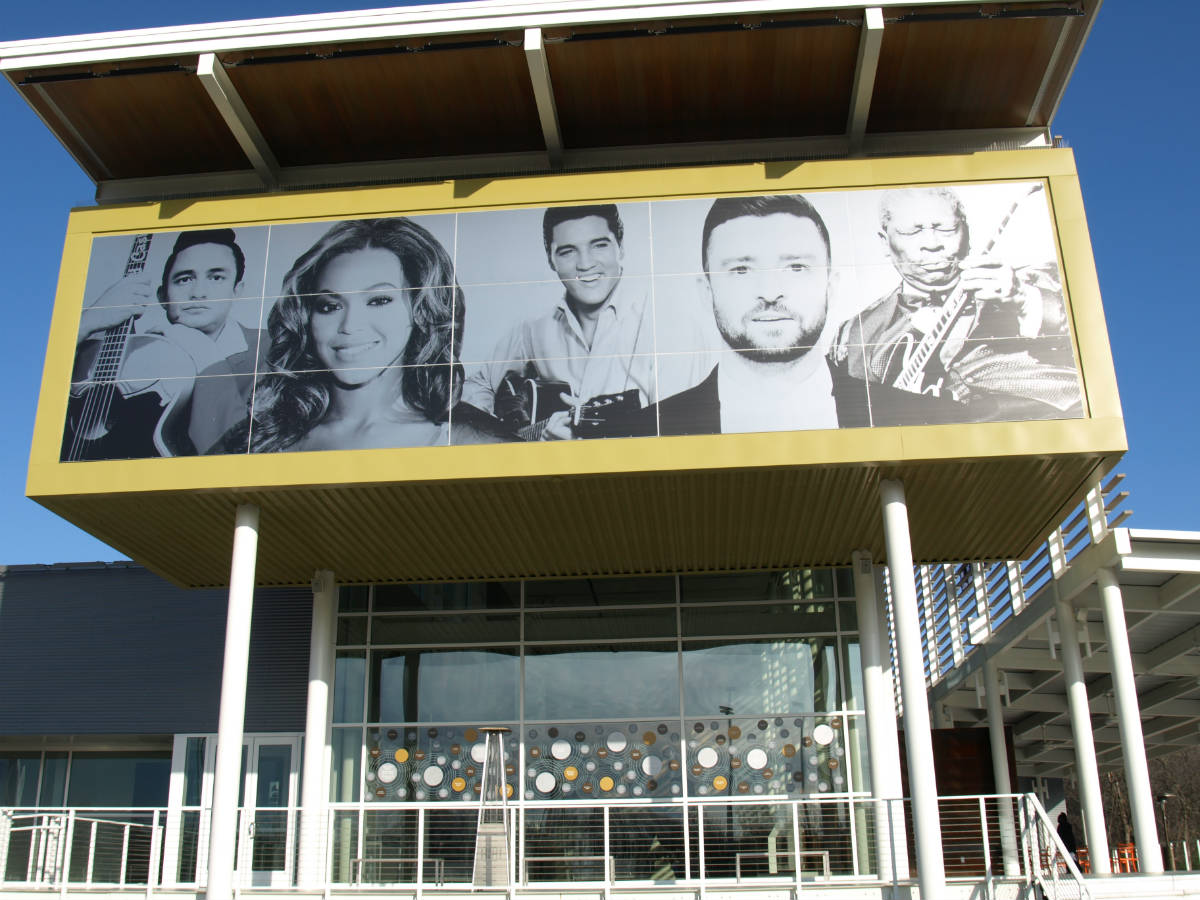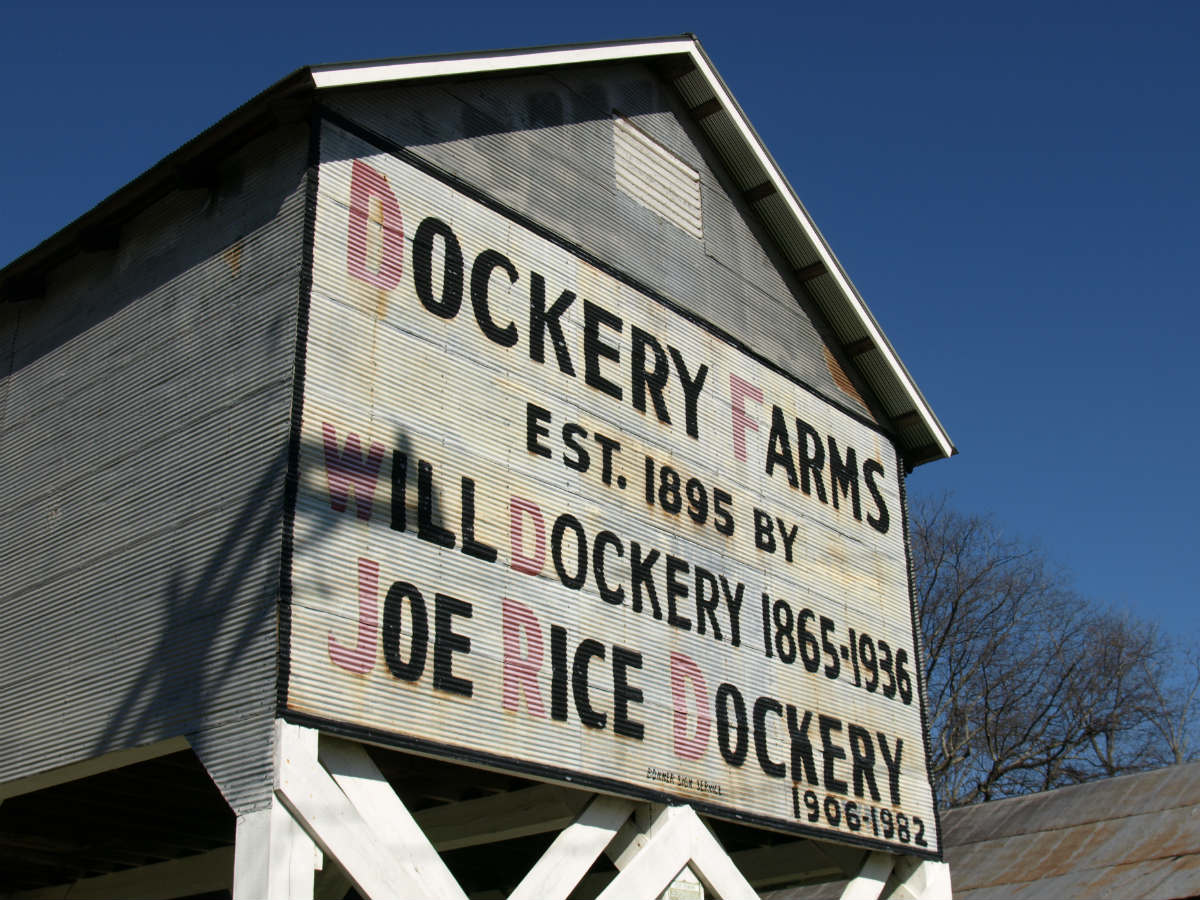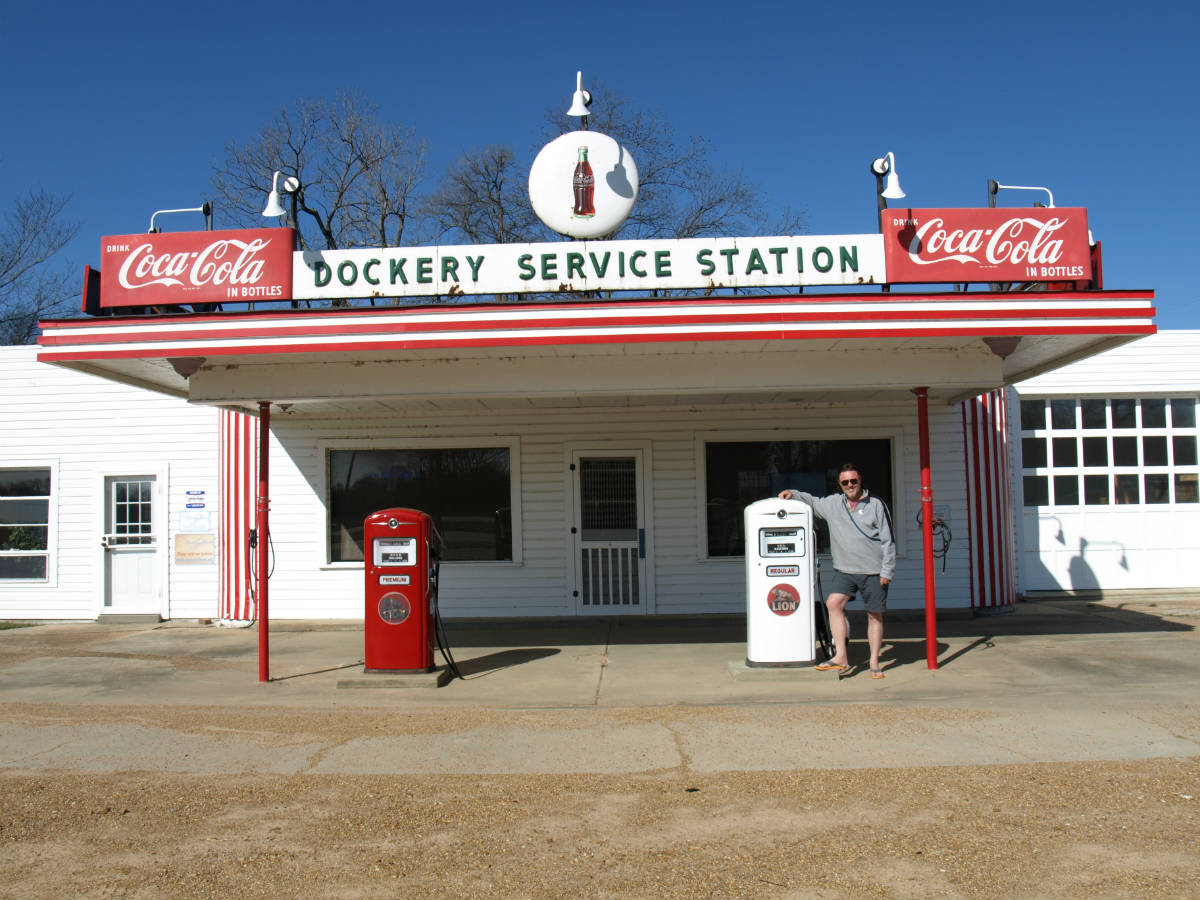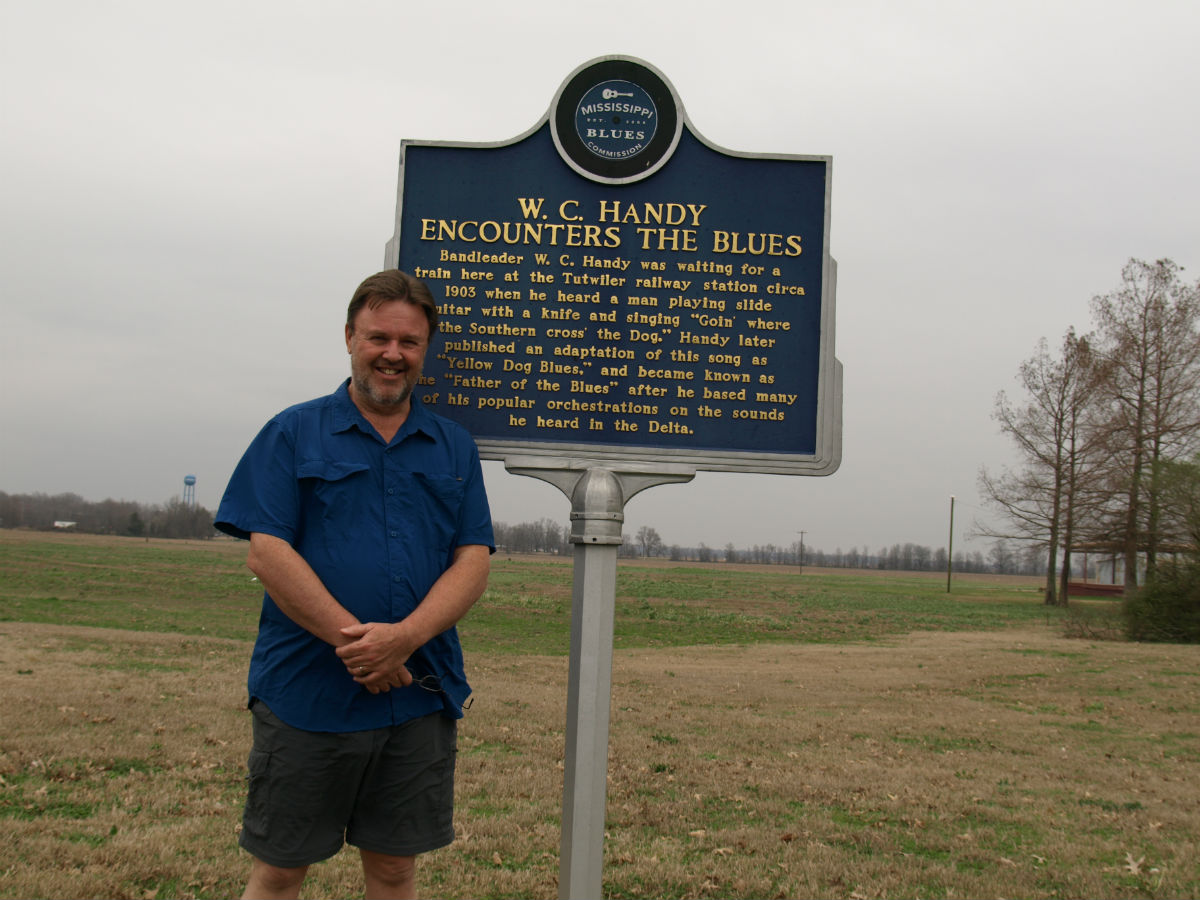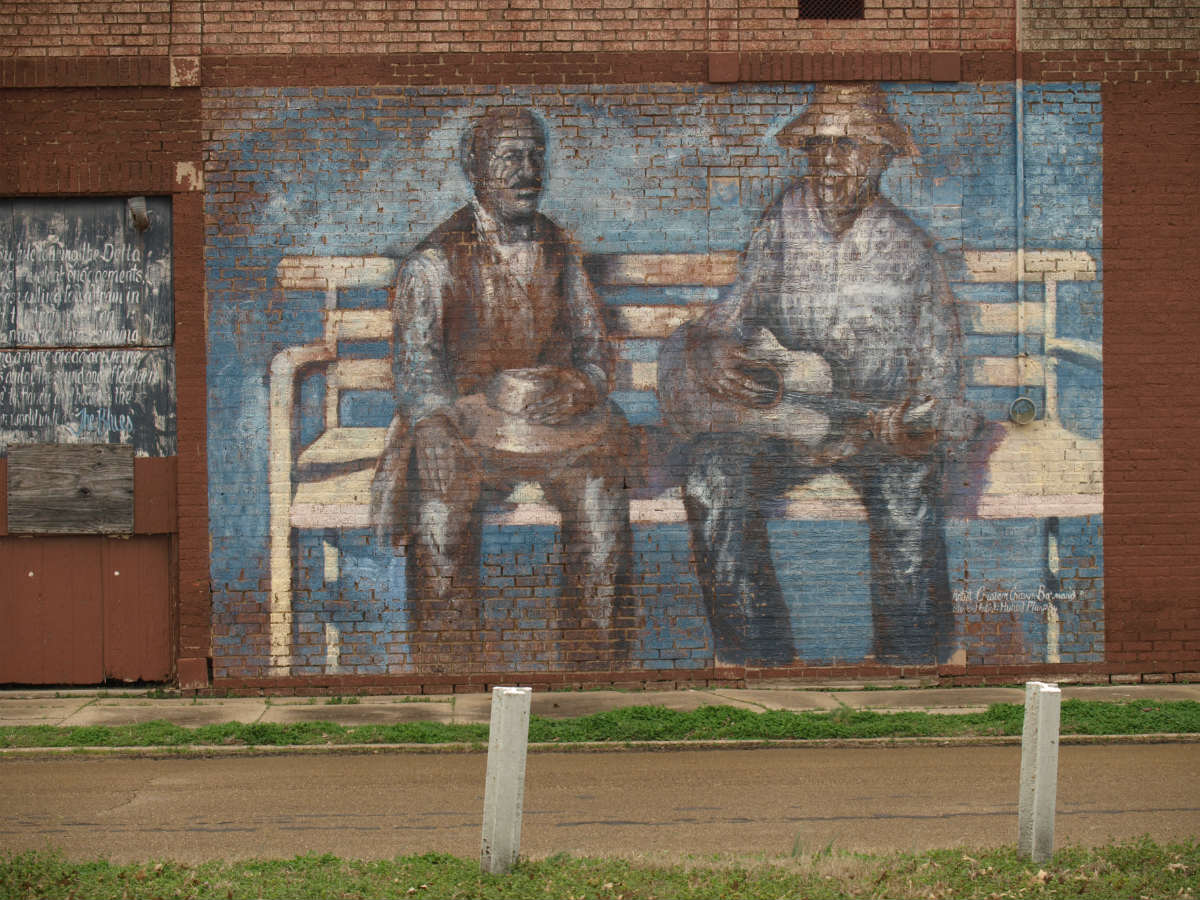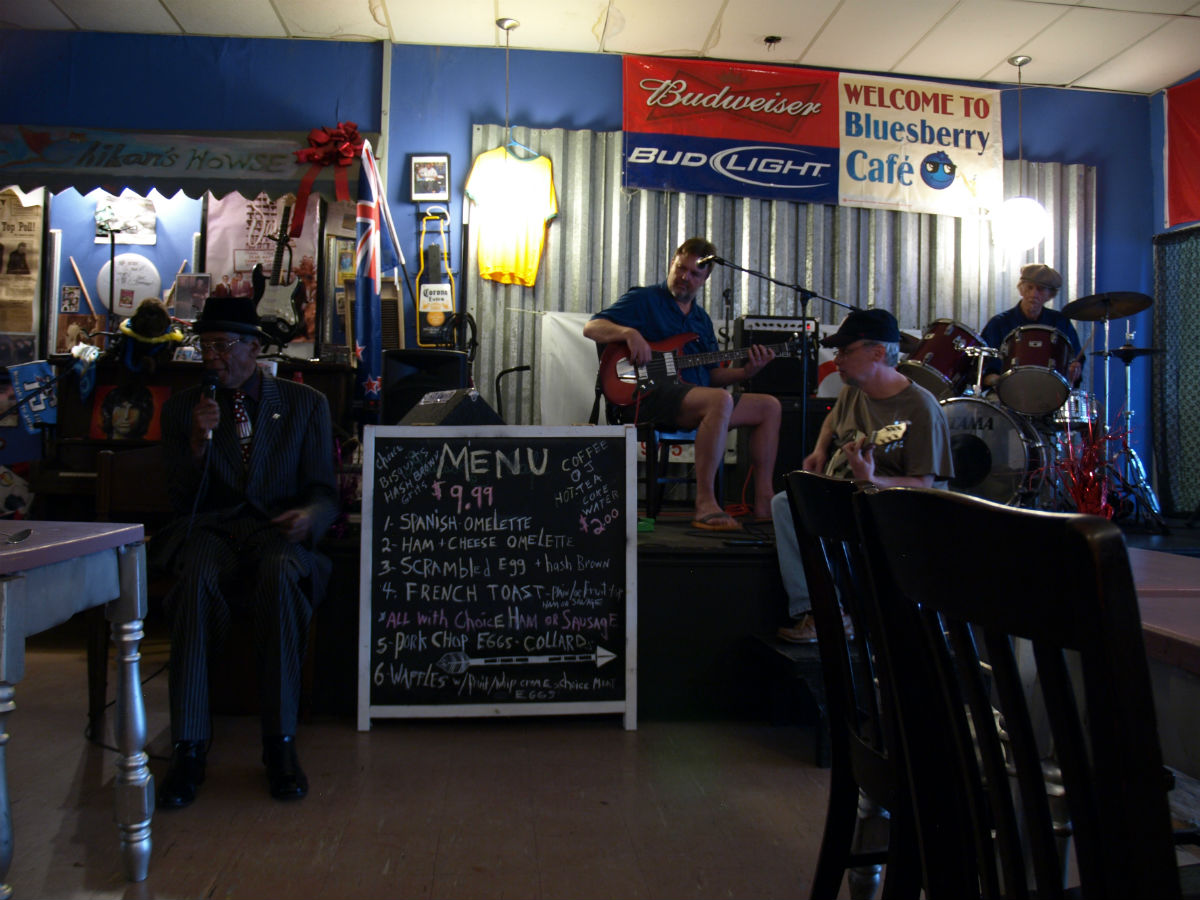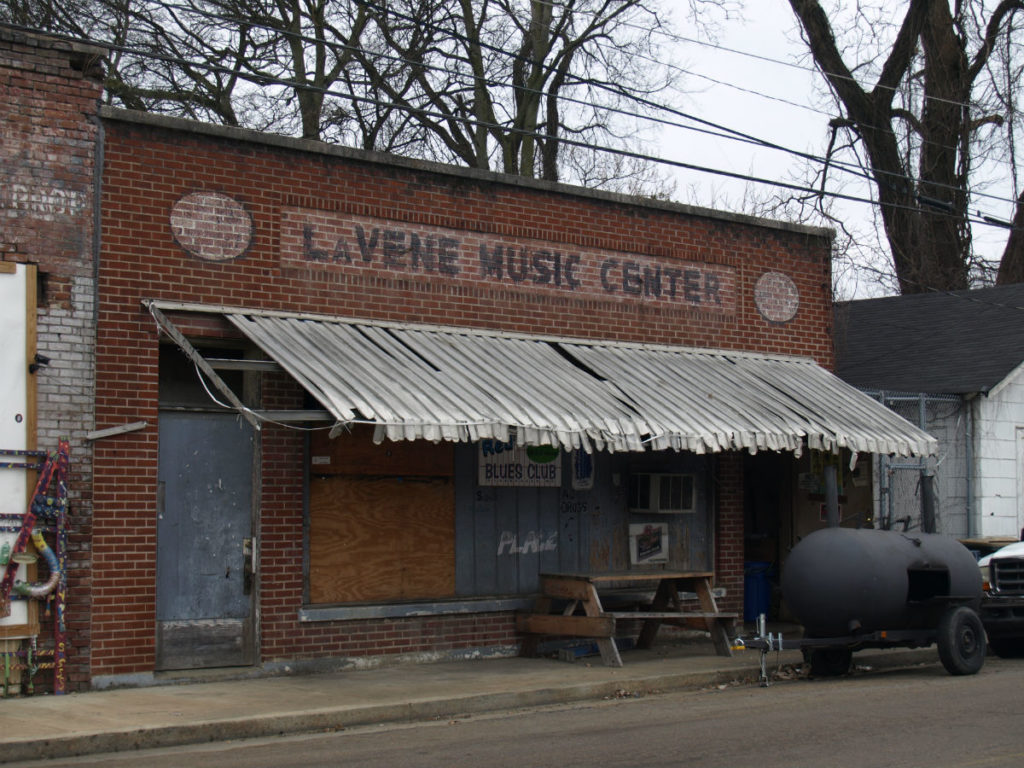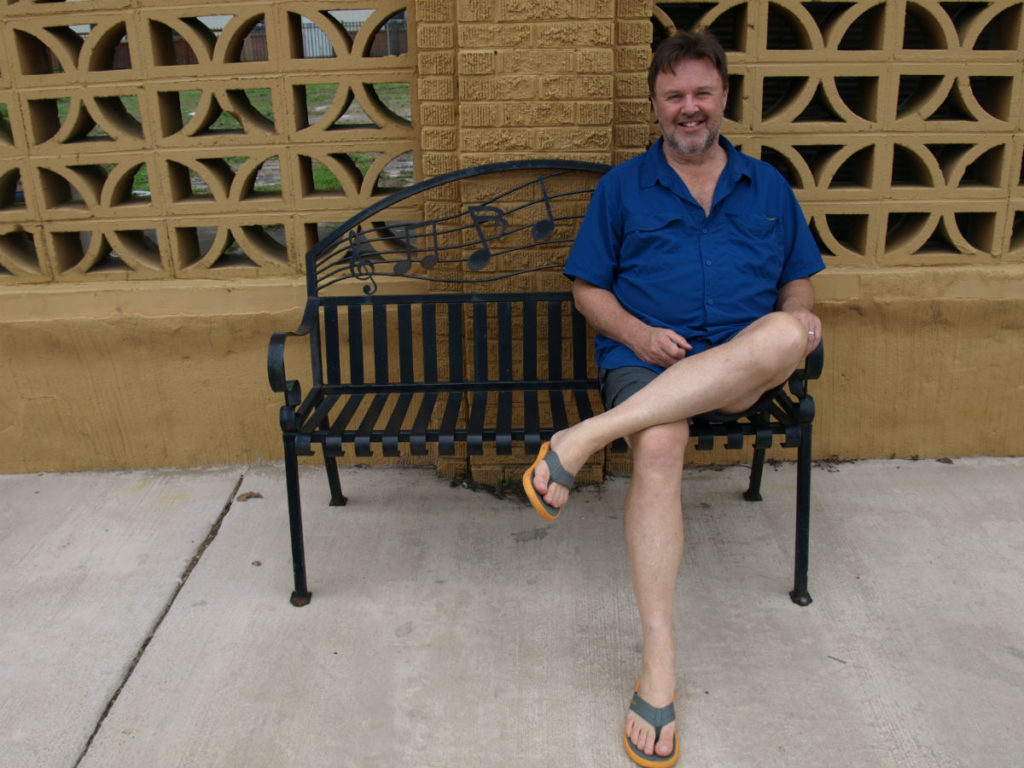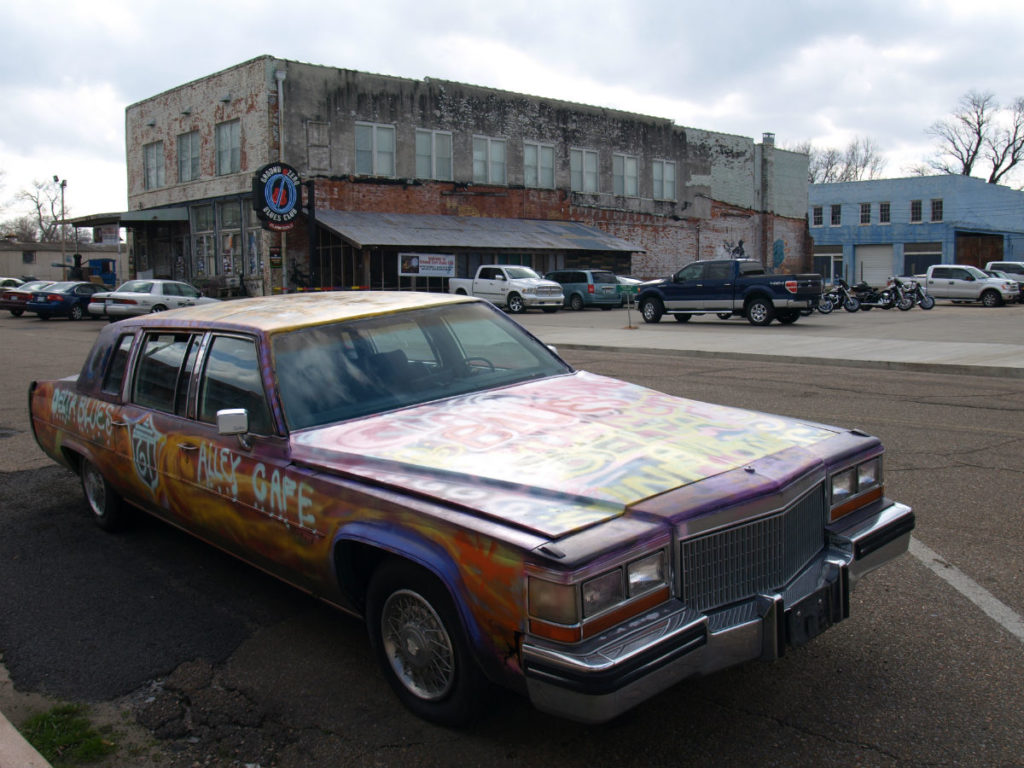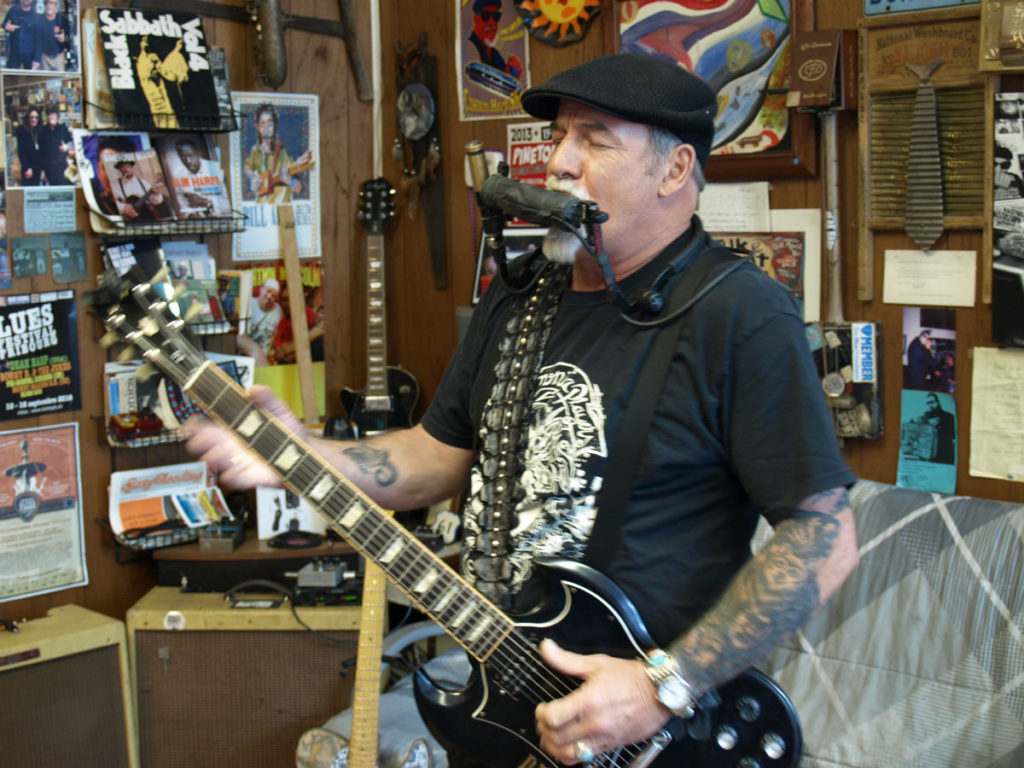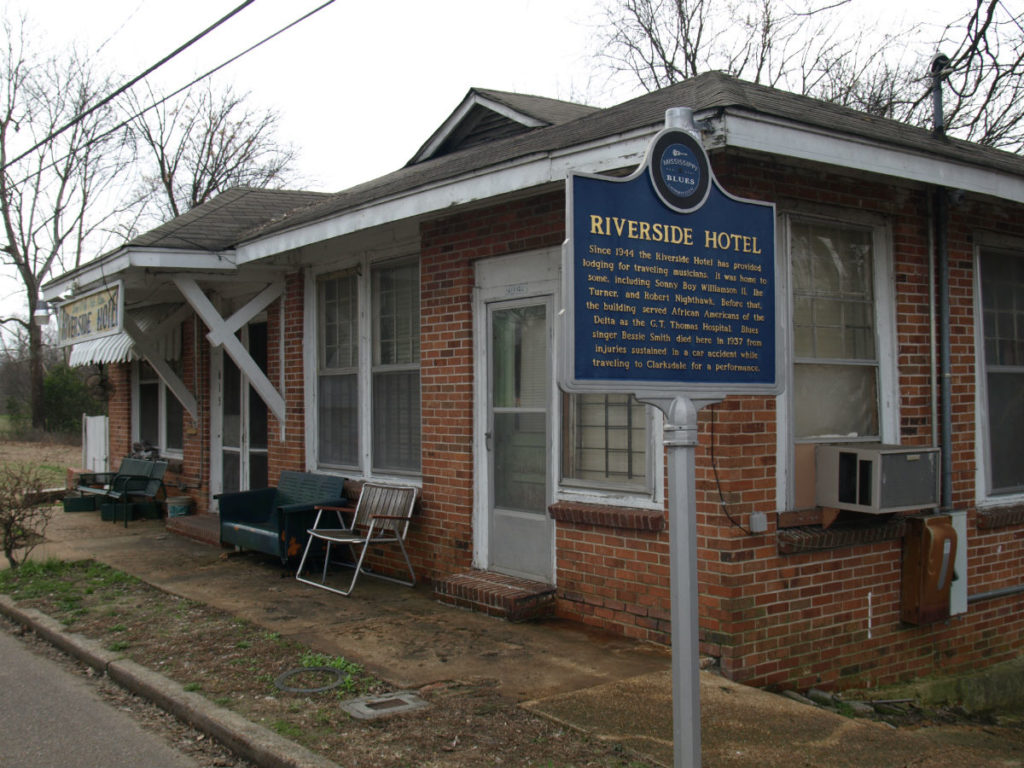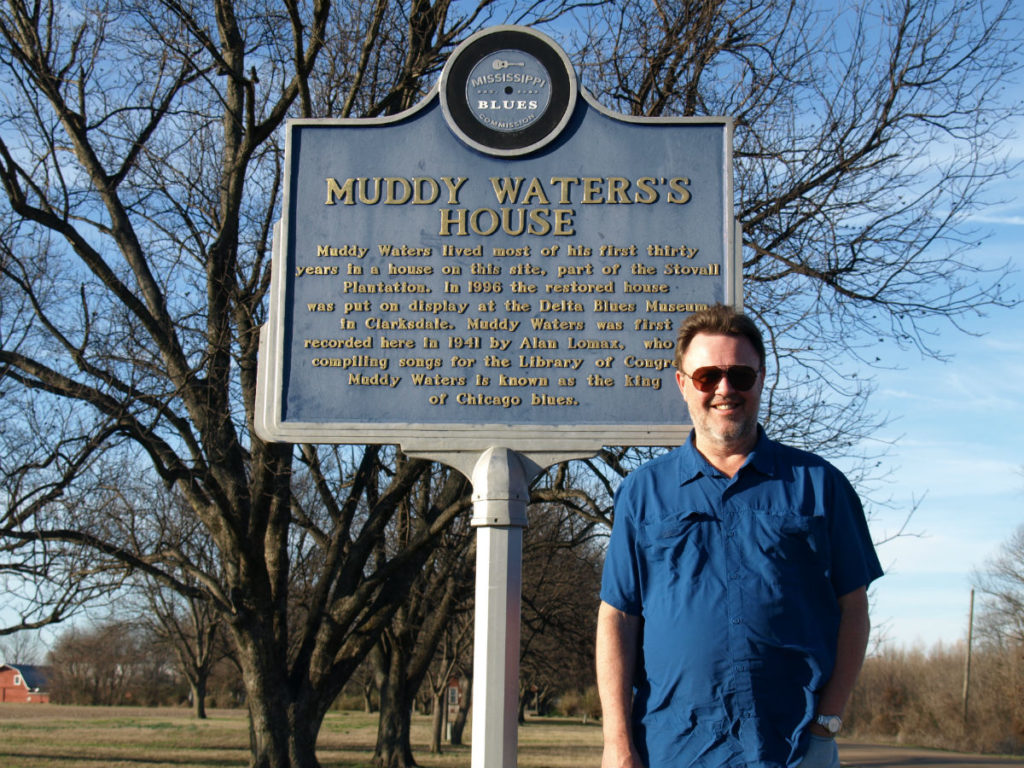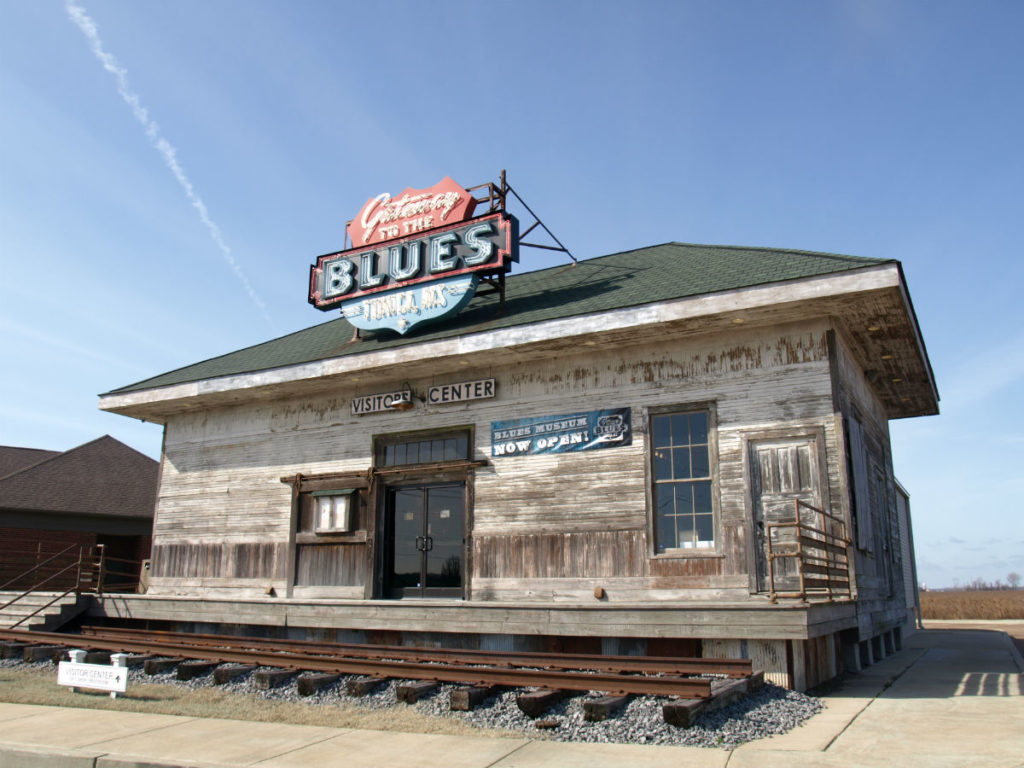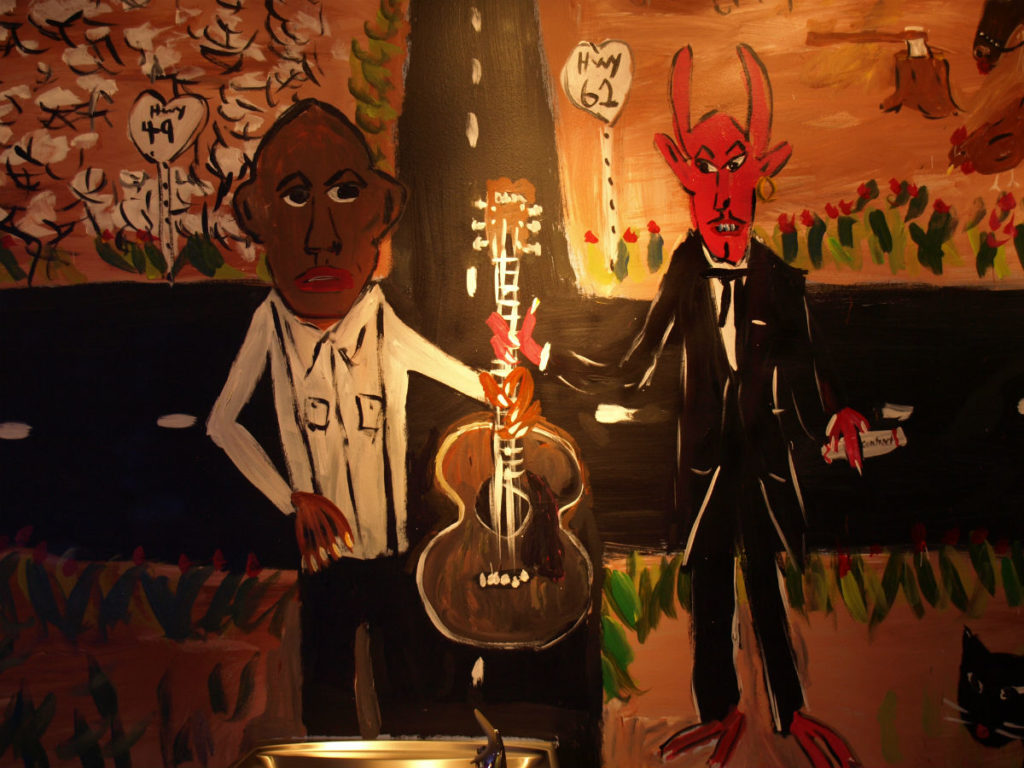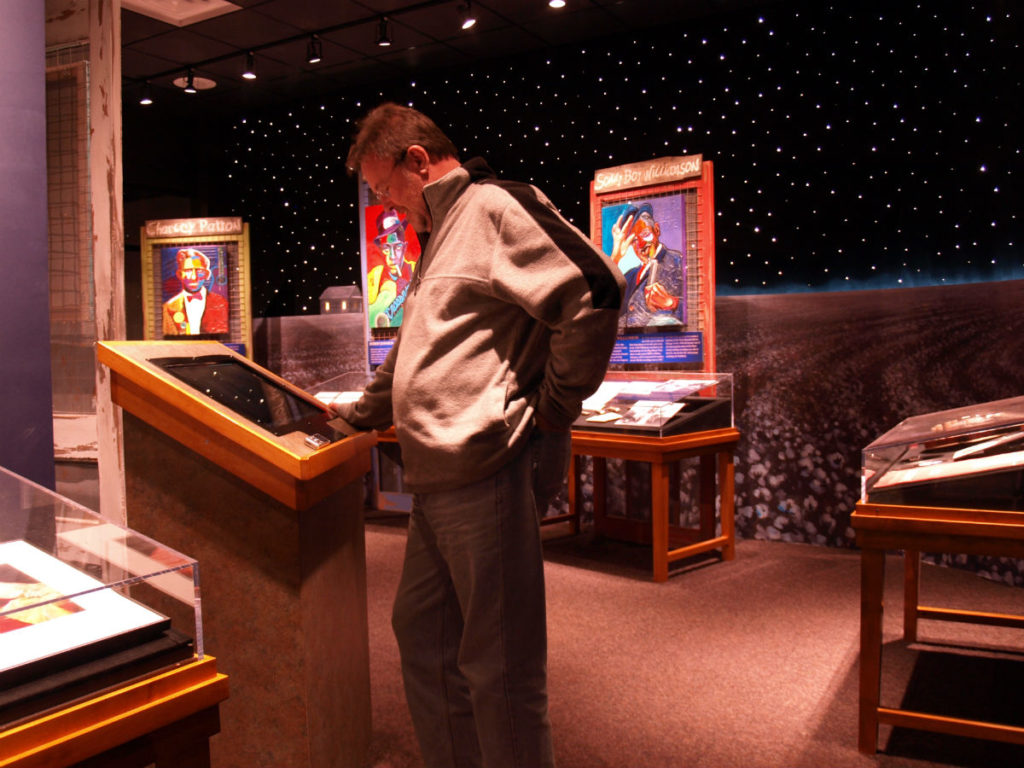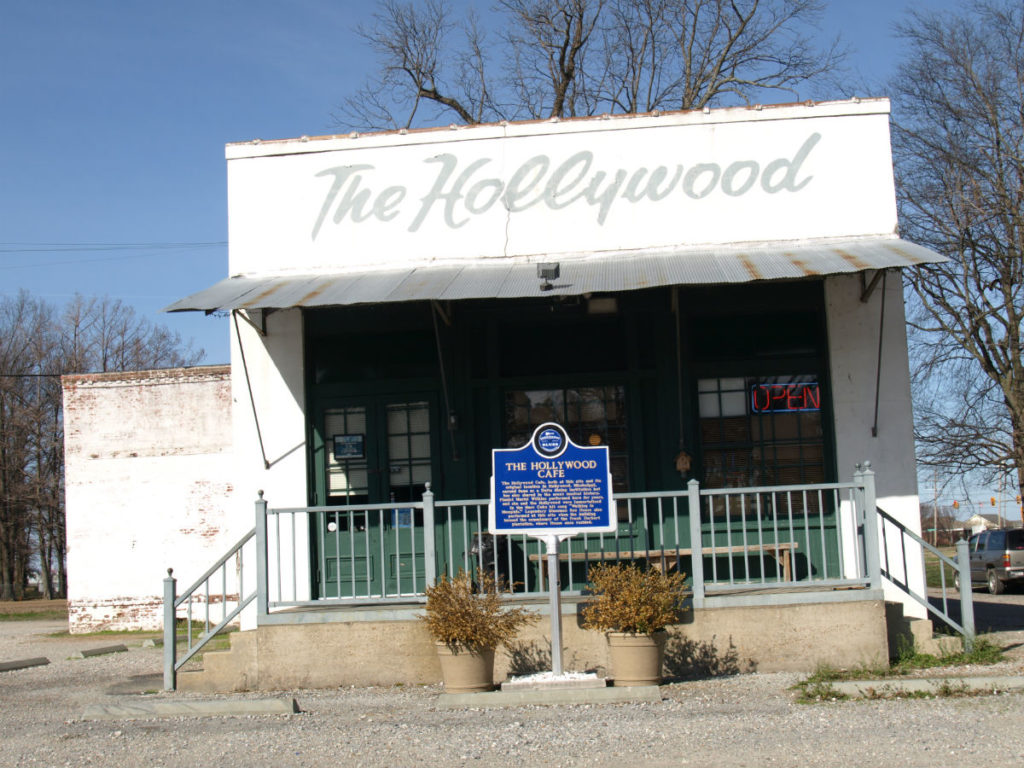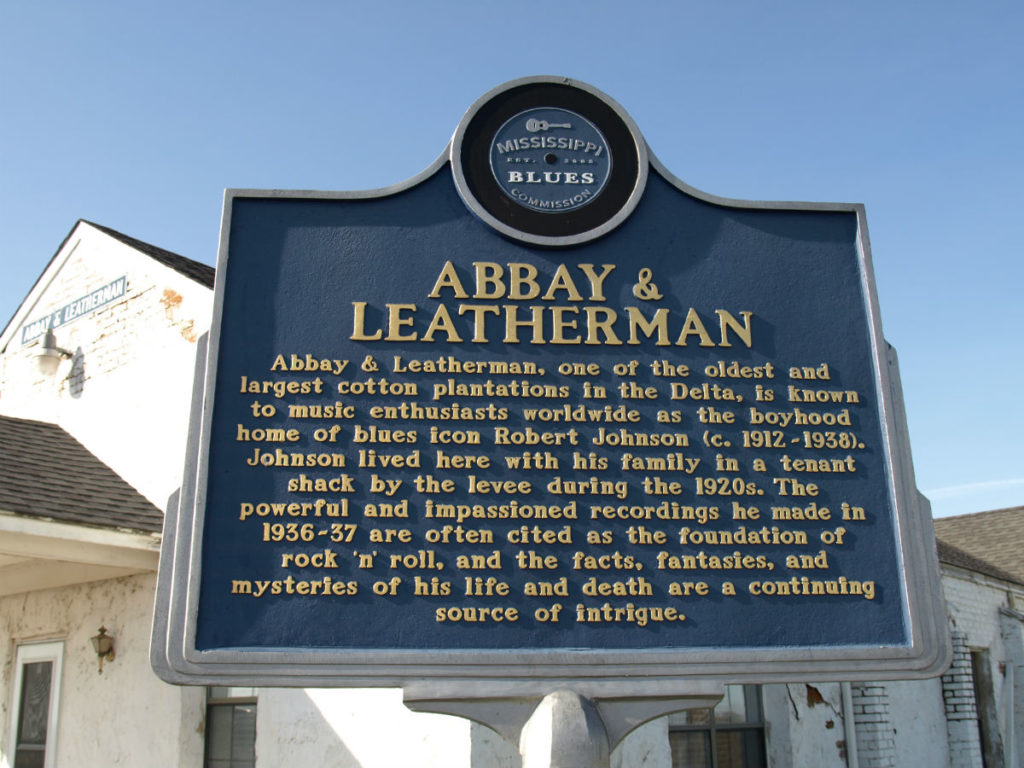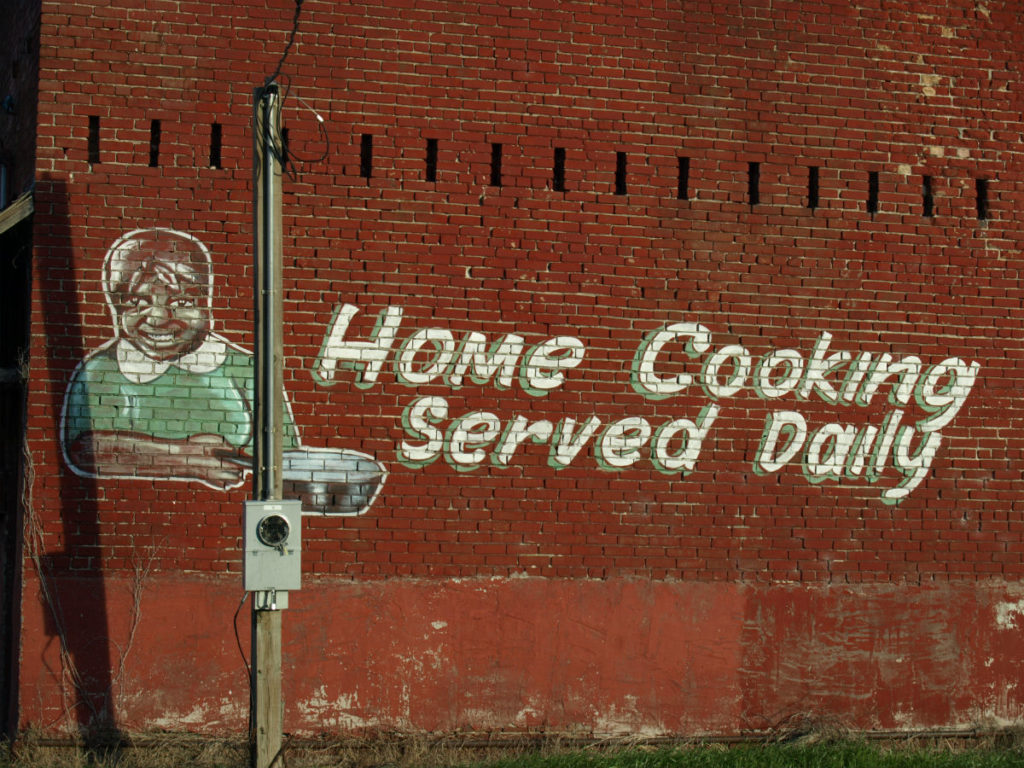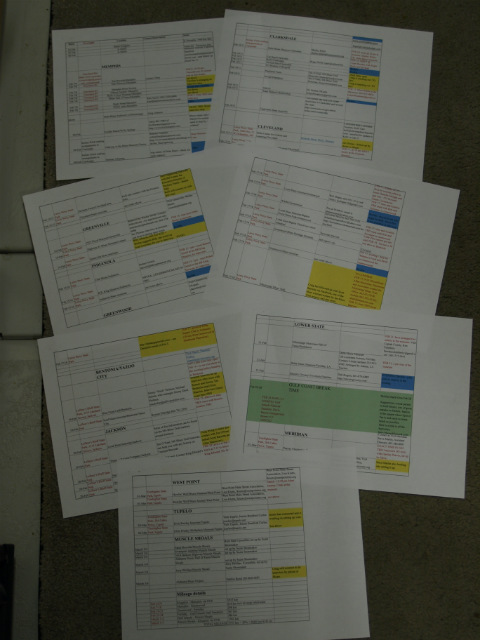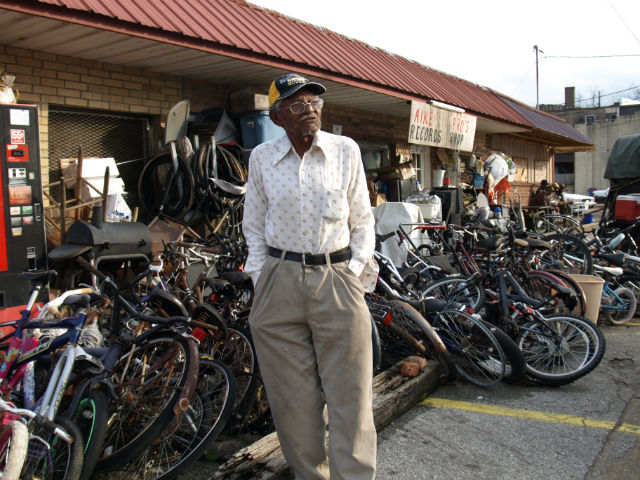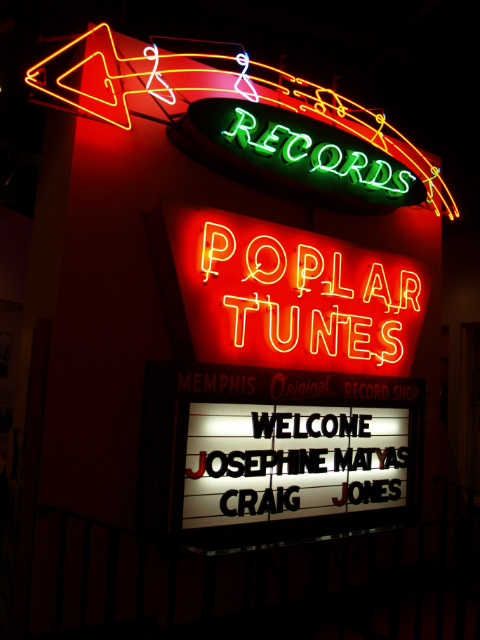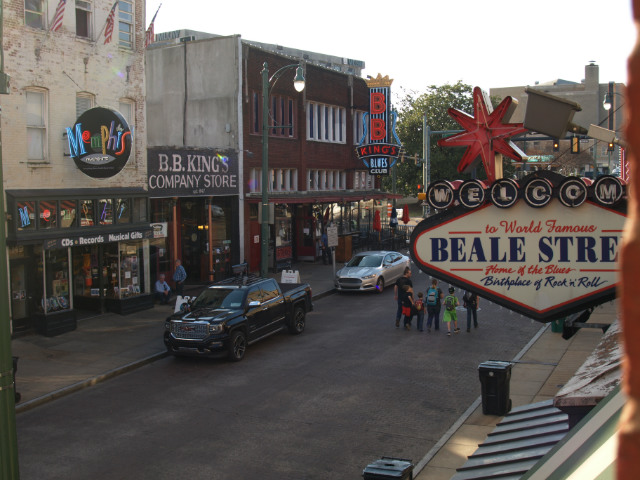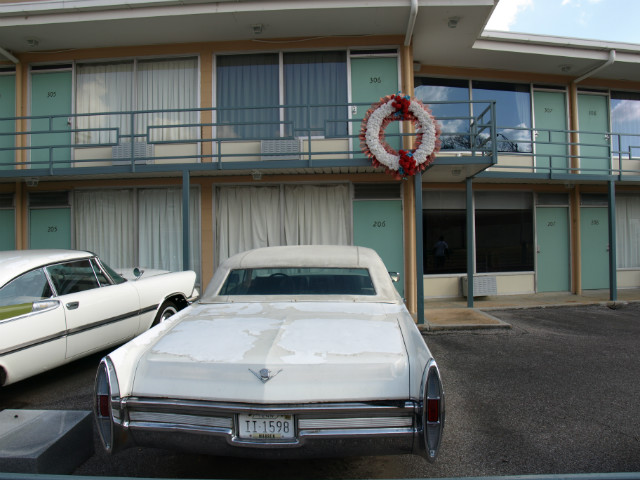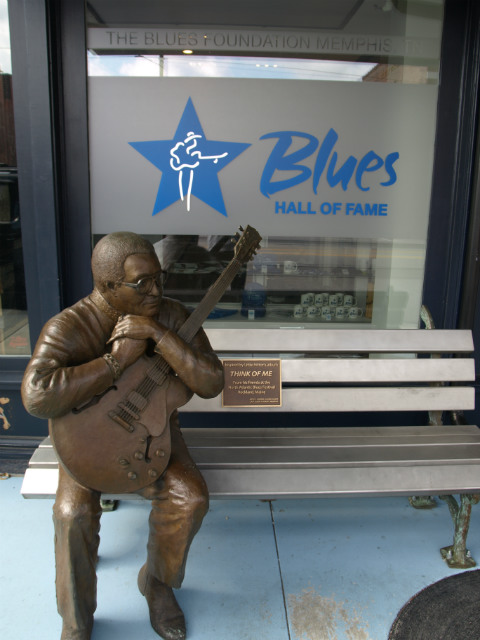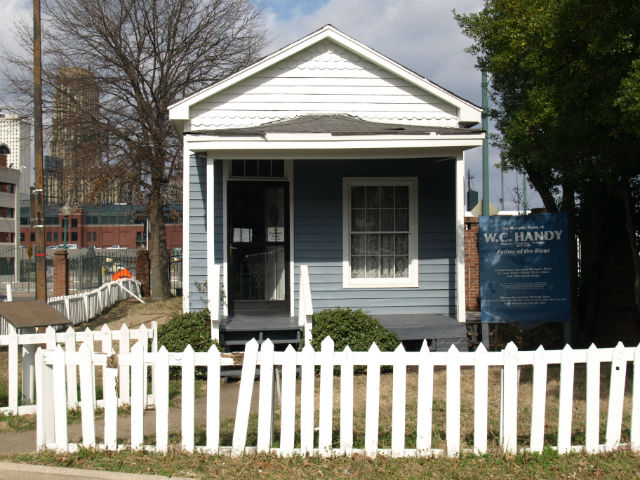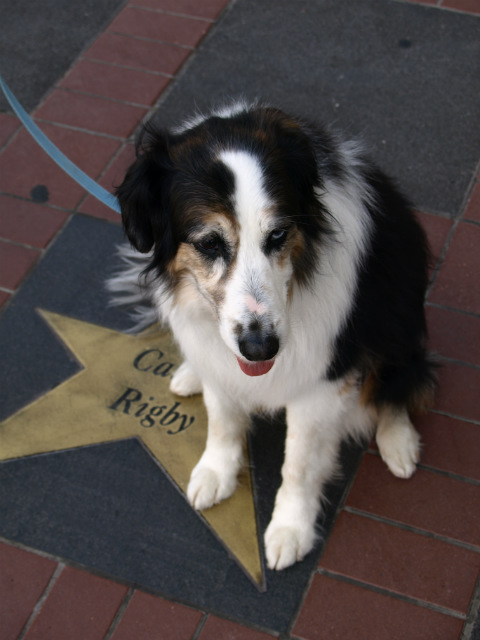It was a long, intense trip – six weeks and 9,000 km exploring the roots of American music across the Southeast. By the end, it had been like following one long, serpentine music trail and we began to appreciate how the various musical genres were intertwined and cross-influenced. Craig’s fingers got a workout on his guitar, as he jammed and played with the talented musicians from old-time to Zydeco to the Delta blues. We had the time of our lives.
MISSISSIPPI BLUES TRAIL
All across the state are markers for the Mississippi Blues Trail, telling the story of powerhouses like Elmore James, John Lee Hooker, Ike Turner, Howlin’ Wolf and Sam Cooke who defined the blues, giving it legs for its journey into the mainstream.
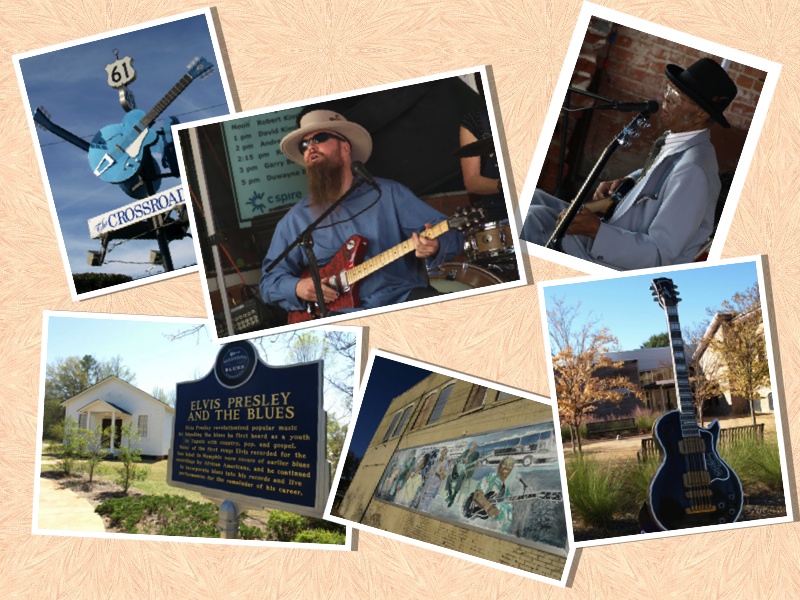
Best musical stops: Clarksdale, B.B. King Museum, Po’ Monkeys, Elvis Birthplace Museum, Delta Blues Museum, Highway 61 Blues Museum, Cat Head Blues & Folk Art, Red’s Lounge, The Blues Archive at The University of Mississippi (Oxford)
Backstory: America’s great gift to human civilization (blues and its little brother, jazz) was born from its greatest shame: slavery. The importation of blacks from Africa and their brutal treatment – coupled to their exposure to European and South American traditions – birthed the field hollers and work songs.
And life in Mississippi – the life from which the blues emerged – was particularly harsh for the slaves who sang in the fields or in prison to distract themselves from the brutality and boredom of their existence, and consoled each other on the Sabbath Day. It’s this fusion of reflection on the real world with longing for the next, that Mississippi bequeathed to the world – and which became the basis for gospel, rock ’n’ roll, soul, Motown and much of 20th-century popular music as it migrated to Memphis, Kansas City, Chicago and eventually the rest of the planet.
If you love the blues, you really need to go to the well, to the source: to the Crossroads at Highways 49 and 61 at Clarksdale in the Mississippi Delta, where myth says Robert Johnson sold his soul to the Devil for guitar mastery. Every April, Clarksdale hosts the Juke Joint Festival, half music festival, half small town fair and all about the Delta. The last survivors of the original blues tradition – before it travelled north to assume its Chicago style – play on the sidewalks and in the small juke joints. But hurry: there are not many of the original bluesmen left as the relentless passage of time carries them off the stage of history.
You really can’t fathom the blues without coming to grips with the human suffering associated with this region. Large swaths of the Delta were made possible by enormous serpentine levees to hold back the water of the Mississippi, virtually all constructed in the harshest conditions by generations of African-American slaves. Greenville, Mississippi, was the epicentre of the catastrophic 1927 levee breach that devastated the economy and people of the Delta, forcing the out-migration of thousands of sharecroppers to the north in search of high ground and jobs. The town’s 1927 Flood Museum tells – through a combination of artifacts, photographs and video – of the flood’s impact on life and death during the four months Greenville, and much of the Mississippi Delta, was underwater.
As blues museums go, the best we saw was the B.B. King Museum and Delta Interpretive Center in Indianola. Because he’s still alive – and still gigging – the museum is overflowing with artifacts from B.B.’s long history on the road, in the studio and as America’s emissary of the blues. For added effect, the Center is built onto a former cotton gin where young Riley B. King ran a tractor before breaking into the blues. It’s a grand story that needs several hours to absorb.
Back in Clarksdale, the excellent Delta Blues Museum is only steps from two authentic blues joints: Ground Zero Blues Club (co-owned by actor Morgan Freeman) and Red’s Lounge. Both are gritty but authentic: as true to the blues as blues is to the life of the Delta. Billy Gibbons – leader of ZZ Top – has taken a role in perpetuating the legacy of Muddy Waters, a Delta bluesman who made his career in Chicago, contributing a guitar fashioned out of a board from Waters’ childhood home, which is reconstructed inside the museum.
The authentic roots of the blues are everywhere across the Delta: at places like Dockery Farms where it’s said that B.B. King claims “it all started,” at the remains of original juke joints like Po’ Monkeys still standing in a cotton field outside Merigold, and in the Mississippi town of Tupelo, home of Elvis Presley who was heavily influenced by the Delta blues that surrounded him as a child. Tupelo is filled with Elvis highlights: the shotgun shack he was born in, the family church where he learned his love of gospel music, the hardware store where he bought his first guitar, the burger joint where he hung out after school and the excellent Elvis Presley Birthplace museum (in our opinion, even better and more authentic than glitzy Graceland in Memphis). Elvis’s mammoth contribution to music was how he sanitized African-American music for white people, blurring the lines between the roots music of blues, country, bluegrass, rockabilly and gospel (and in the process, birthing rock ‘n’ roll).
At The University of Mississippi in Oxford, The Blues Archive project took off when B.B. King contributed his 8,000 volume record collection. Call ahead to ask archivist Greg Johnson to pull something of interest from the impressive stacks – they’ve got material that has never been posted on YouTube or on the web, rare concert footage, interview tapes, original Robert Johnson 78s and sound recordings in formats from wax cylinders to DVD.
Classic artists and tunes:
Hoochie Coochie Man, Muddy Waters
Dust My Broom, Elmore James
Crossroad Blues, Robert Johnson
The Thrill Is Gone, B.B. King
